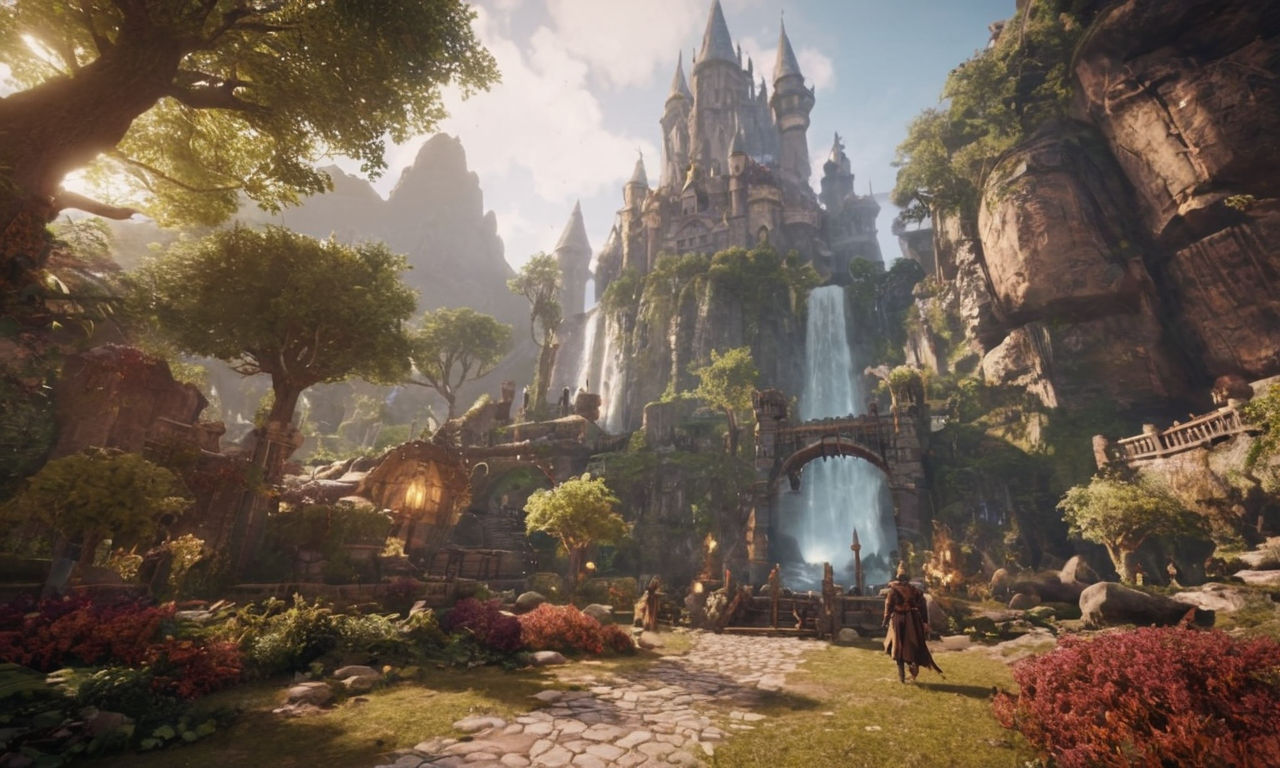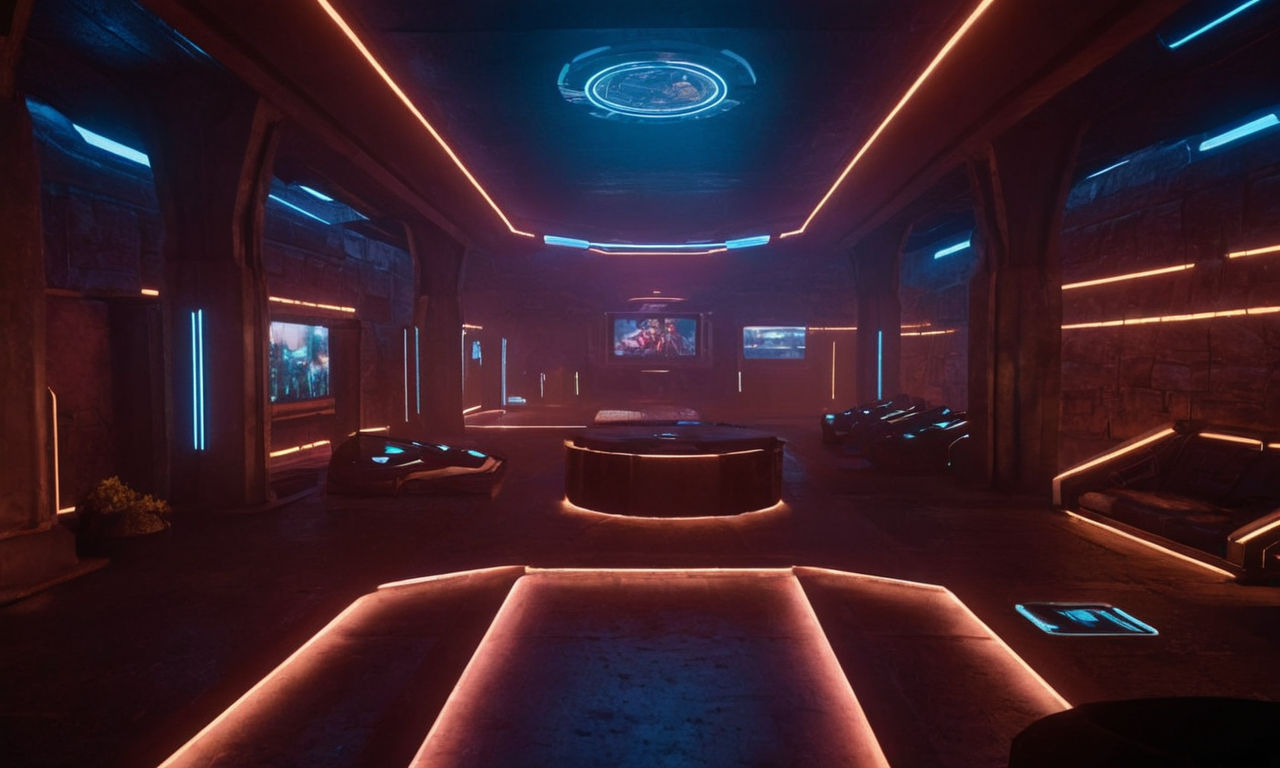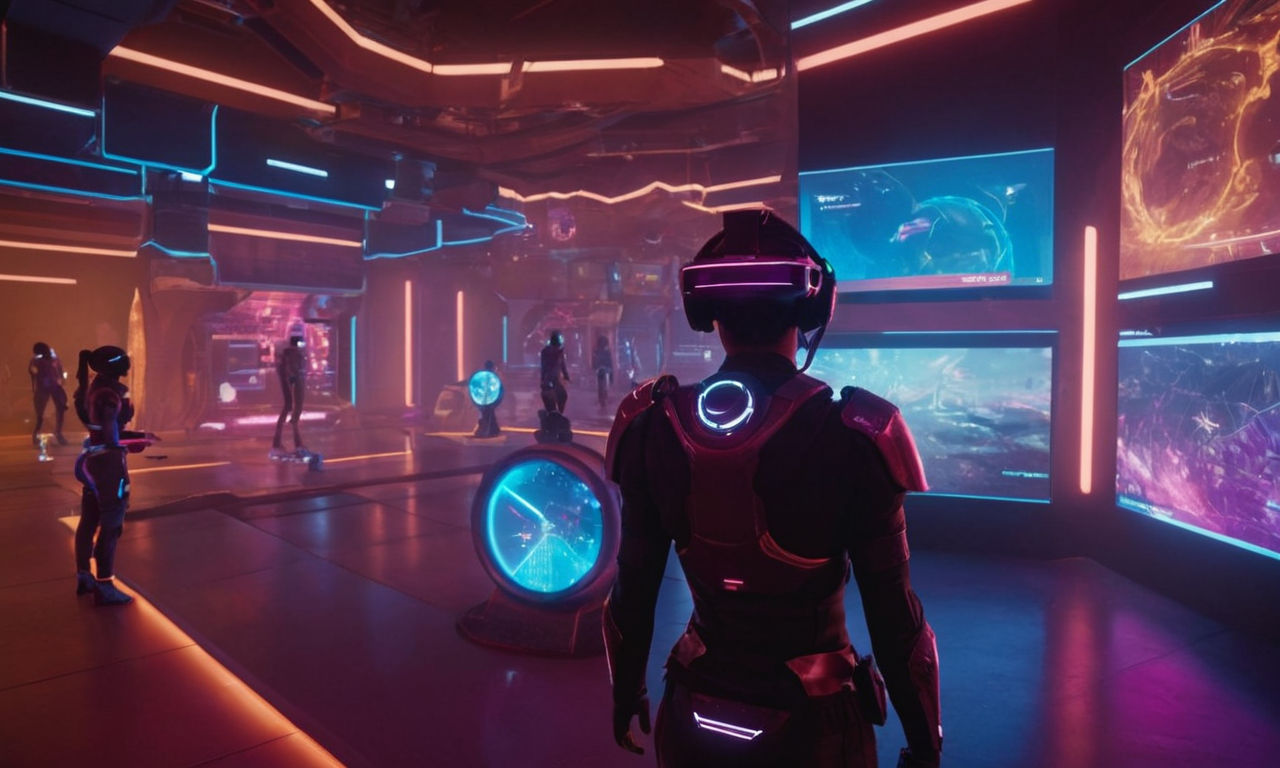Introduction
In the evolving landscape of gaming, one cannot overlook the strategic integration of RPG elements in non-traditional RPG game genres. This blog post delves into the intriguing motives guiding the inclusion of RPG features in diverse game categories. Let's unravel the layers behind the cynical reasons driving this trend and question the authenticity of the RPG genre in contemporary gaming.
Evolution of Game Design
The evolution of game design is a dynamic journey reflecting the shifting preferences of players and the industry's response to these demands. Historically, game design has witnessed a remarkable transformation, moving from simple arcade games to complex and immersive experiences. Along this evolutionary path, game genres have adapted to incorporate fresh elements to cater to a wider audience.
The landscape of modern gaming is marked by a notable trend – the infusion of RPG elements into various game genres. Games, regardless of their original category, increasingly adopt RPG features such as character progression, skill trees, and narrative depth. This amalgamation aims to enhance player engagement, create immersive experiences, and prolong gameplay longevity.
Transition of Game Genres Over Time
Emergence of Hybrid Genres: Games today blur the lines between traditional genres, giving rise to hybrid categories that offer a versatile gaming experience.
Market Demand for Diversity: Players seek multifaceted gaming encounters, prompting developers to experiment with genre crossovers to meet these evolving preferences.
Understanding RPG Genre
At the heart of video games, the Role-Playing Game (RPG) genre stands as a pillar of immersive storytelling and player agency. Defined by its core characteristics of character progression, narrative-driven gameplay, and decision-making impact, RPGs offer a unique gaming experience that resonates with a broad audience.

The enduring appeal of RPG games lies in their ability to transport players into richly developed worlds, where their choices shape the narrative and outcomes. The longevity of the RPG genre can be attributed to its adaptive nature, flexibility in storytelling, and deep player engagement.
Fundamental Components Defining an RPG
Character Progression: Advancing and customizing characters through leveling systems and skill upgrades.
Narrative Depth: Rich, immersive storylines that encourage player involvement and decision-making.
Player Agency: Empowering players to influence the game world through choices and consequences.
Cynical Motives Driving RPG Element Integration
In the ever-evolving landscape of gaming, one cannot ignore the noticeable trend of incorporating RPG (Role-Playing Game) elements into genres that traditionally have not featured such mechanics. This shift is not merely a creative decision but often a strategic move influenced by various cynical motives within the gaming industry. Let's delve into the reasons behind this integration and the potential implications:
Market Trends Impacting Game Development: The gaming industry is highly competitive, driven by the need to capture and retain players' attention. With the saturation of certain genres, developers are turning to RPG elements to inject new life into their games and appeal to a broader audience. This trend reflects a calculated response to market demands and player preferences.
Monetization Strategies: The inclusion of RPG elements can also be attributed to monetization tactics employed by game developers. By introducing progression systems, loot boxes, or microtransactions commonly associated with RPGs, developers aim to increase player engagement and potentially boost revenue. This approach, while effective from a business standpoint, can sometimes be perceived as exploitative.
Player Retention and Engagement: RPG elements, such as character customization, skill trees, and narrative choices, offer players a sense of agency and progression. By integrating these features into non-RPG games, developers aim to enhance player engagement and encourage long-term retention. However, this strategy can sometimes prioritize superficial rewards over meaningful gameplay experiences.
Player Engagement Tactics
Player engagement lies at the heart of game design, shaping the overall gaming experience and fostering a connection between players and the virtual world. When examining the role of RPG elements in enhancing player engagement, several tactics come into play:
Interactive Narratives: RPGs are known for their rich, branching storylines and narrative depth. By incorporating similar storytelling techniques into games across different genres, developers can immerse players in compelling narratives that respond to their choices and actions. This interactive storytelling fosters a sense of investment and agency, enhancing player engagement.
Progression Systems: Progression systems, such as leveling up, acquiring new abilities, and customizing characters, are core elements of RPGs. These mechanics provide players with a sense of achievement and growth, incentivizing continued play. By integrating progression systems into non-RPG games, developers can create a sense of advancement and personalization that keeps players invested in the experience.
Psychological Immersion: RPGs excel at drawing players into immersive worlds where they can inhabit different roles and personas. This psychological immersion, fueled by intricate world-building and character development, evokes strong emotional responses and a deep connection to the game world. By leveraging these immersive elements, developers can create experiences that resonate with players on a profound level, driving long-lasting engagement.

Deconstructing RPG Genre Validity
As the boundaries between game genres blur and innovation continues to reshape the gaming landscape, the validity of the traditional RPG genre comes into question. Let's challenge preconceived notions and explore alternative perspectives on the necessity of the RPG genre in modern gaming:
Evolution of Game Design: With game design evolving rapidly and genres blending seamlessly, the rigid classification of games into distinct categories like RPGs may seem outdated. Modern games often combine elements from multiple genres, offering unique experiences that defy traditional genre conventions. In this context, the strict definition of what constitutes an RPG becomes less relevant.
Essential RPG Elements: While RPGs have historically been defined by specific gameplay mechanics like character progression, narrative complexity, and choice-driven gameplay, these elements are no longer exclusive to the genre. Games across various genres now incorporate RPG elements to enhance player engagement and storytelling, blurring the lines between traditional genre definitions. This trend challenges the notion that RPGs must adhere to a fixed set of criteria to be considered part of the genre.
Diverse Player Perspectives: The validity of the RPG genre ultimately depends on the perspectives of players and developers. Some argue that the essence of RPGs lies in player agency, story-driven experiences, and character development, regardless of genre conventions. Others believe that the evolution of gaming necessitates a more fluid approach to genre classification, allowing for greater creativity and innovation. By embracing diverse viewpoints, the gaming community can enrich discussions on the relevance and validity of the RPG genre in contemporary game design.
In conclusion, the integration of RPG elements into non-RPG games reflects a broader shift in game development strategies driven by market demands and player engagement tactics. While the traditional RPG genre faces questions regarding its validity in modern gaming landscapes, the evolution of game design and player perspectives continue to shape the future of interactive storytelling and immersive gameplay experiences.
Crafting Engaging Gameplay Experiences
In the ever-evolving world of gaming, crafting engaging gameplay experiences is essential to capturing the attention of players and keeping them immersed in virtual worlds. Game developers constantly seek ways to create captivating narratives and interactive environments that keep players coming back for more. This quest for engagement has led to the integration of RPG elements in various game genres, offering a deeper level of player involvement and personalization.
RPG elements, such as character progression, decision-making, and immersive storytelling, play a crucial role in enhancing game narratives. By allowing players to shape their in-game persona, make meaningful choices, and impact the game world, RPG elements add layers of complexity and depth to gameplay experiences. These elements create a sense of investment and attachment, making the virtual world feel more dynamic and personalized to individual players.
Game designers face the challenge of balancing innovation with traditional RPG elements to create a harmonious gameplay experience. While innovation drives the industry forward by introducing new mechanics and features, traditional RPG elements serve as a foundation for engaging storytelling and character development. Finding the right blend of innovation and familiar elements is key to creating memorable and immersive gameplay experiences that resonate with players.
Evolution of Game Design in RPG Elements:

Innovative Gameplay Mechanics: Game designers experiment with new ways to implement RPG elements, such as branching storylines, moral dilemmas, and dynamic character relationships.
Adaptation Across Genres: RPG elements are being integrated into a wide range of game genres, from action-adventure to sports simulation, expanding the scope of player engagement.
Player-Centric Experiences: Customization options, player agency, and narrative choice shape the player's journey, fostering a deeper connection to the game world.
Impact on Gaming Communities
The influence of RPG games extends far beyond individual gameplay experiences, impacting gaming communities at large. These games have the power to build lasting communities, foster social interactions, and create shared experiences among players. The immersive nature of RPG genres encourages collaboration, competition, and exploration, forming strong bonds within gaming communities.
Nostalgia also plays a significant role in driving the popularity of RPG genres. Many players have fond memories of classic RPG titles that shaped their gaming experiences, leading to a sense of nostalgia and emotional attachment to the genre. Game developers often leverage this nostalgia by incorporating familiar elements from past RPGs, catering to both long-time fans and new players seeking a taste of nostalgia.
As gaming technology advances and player preferences evolve, the future of RPG games holds exciting possibilities. The potential evolution of RPG games may involve innovative multiplayer experiences, augmented reality integration, and dynamic player-driven narratives. These advancements aim to keep the genre relevant and engaging in an ever-changing gaming landscape, catering to the diverse interests of players.
Future Trends in RPG Game Development:
Cross-Platform Integration: Seamless gaming experiences across various platforms, allowing players to continue their adventures on different devices.
Emergence of Live Service Models: Continuous updates, events, and community-driven content keep players engaged and invested in the long-term.
Inclusive Game Design: Accessibility features, diverse character representation, and player feedback mechanisms shape more inclusive and player-friendly experiences.
Conclusion
In conclusion, exploring the cynical reasons behind the integration of RPG elements into various game genres sheds light on the intricate motives driving game design choices. Understanding the importance of crafting engaging gameplay experiences, balancing innovation with tradition, and acknowledging the impact of RPG games on gaming communities is crucial in appreciating the dynamic nature of the RPG genre.
By reflecting on the significance of game design evolution, player engagement tactics, and the evolving landscape of RPG games, we gain a deeper insight into the role of RPG genres in modern gaming contexts. Encouraging further exploration and discussion on the validity and evolution of the RPG genre invites players, developers, and enthusiasts to delve into the complexities of game design and storytelling, shaping the future of interactive entertainment.



